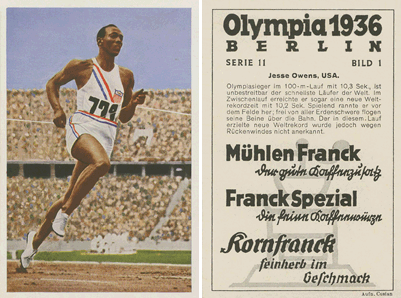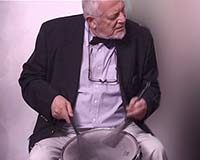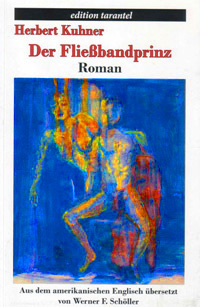There Are Moments
Yes, there are moments. But between those moments there are long, long periods.
I’ve always had nostalgia for the days of railroads as you see them in the films of the Thirties and Forties. Adding to the atmosphere are the Redcaps in the great metropolitan railroad stations and the Pullman Porters of the sleeping cars. These men are probably all gone now, but when they were around, I’m sure nostalgia wasn’t anything that touched them.
The view from the outside is always different from the view within.
Pullman Sleeping Car sounds wonderful. The word Pullman conjures up luxury and cushions. You’d think that George Pullman, the initiator of the Pullman cars, must have been a swell fellow. He wasn’t. The situation of those elegant black men was deplorable. They had to pay for their uniforms, their food and there were no benefits. While the passengers, they served, slept on comfortable beds, they had short naps on a cot behind a curtain in the toilet. There was no such thing as relaxing.
Our Founding Fathers were great men with vision, but the splendid documents they authored did not apply to all the inhabitants to the Thirteen Colonies. It took the Civil War and the 13th and 19th Amendments for those documents to apply to all Americans.
Let’s jump to 1942! That year the Tuskegee Program was initiated by the Democratic Party for Negroes, which was the term of the time for blacks. It was one of the steps that led to the Civil Rights Bill of 1965.
Let’s jump to 1942! That year the Tuskegee Program was initiated by the Democratic Party for Negroes (which was the term of the time for blacks). It was one of the steps that led to the Civil Rights Bill of 1965.
There’s a film about the men who first joined this program titled The Tuskegee Airmen. In a scene pilots in training are forced to land on an Alabama highway, where a chain gang happens to be working. The guards guide the chained blacks from the highway with their rifles to make room for the aircraft. When the pilots emerge and remove their goggles, the astonished guards gasp. “They’re niggers!”
The camera then pans to an old black prisoner, who says: “Our boys are pilots!”
I don’t know if that particular scene took place in reality, but others like it have taken place.
One of the Tuskegee airmen was the great bassist Percy Heath of the Modern Jazz Quartet, who left us in 2005. And of course, many great jazzmen and -women played their part in breaking down racial barriers. It’s really hard to look down on someone whose abilities you admire.
White musicians like Benny Goodman, Artie Shaw and Charlie Barnet and Gene Krupa were among the first to integrate bands and John Hammond, the great jazz impresario and critic, was the man who first had blacks on the stage of Carnegie Hall and integrated the audience of the Hall.
I am a jazz buff, and I’ve followed up and written about this subject, but I’ve never been a baseball fan – or a sports fan, for that matter.
I’m not one of those guys who’d sit for hours in a stadium, a ballpark or in front of a TV-set watching a game. It was all a foreign language for me. And it still is. But I did like listening to Bill Stern tell stories about athletes on his radio show. I had a pocket book of those stories, but unfortunately, I lost it years ago. What I’m saying is that the individuals interest me, not the game they play.
I guess I’m not really one to write about baseball, but here’s an interesting fact: in the days when there were white teams and black teams, there was an annual white vs. black game, and guess who invariably won? That’s right, it wasn’t the white team. And the losing team very seldom took the loss as gentlemen.
Isn’t that sad? I like to think that in the old days there was chivalry among athletes.
Well, as we know, Branch Rickey the Dodger coach broke through the racial barrier with Jackie Robinson back in 1947. Most of Jackie’s teammates didn’t buddy up to him. Imagine, they got up a petition to keep the black out! One man, shortstop Peewee Reese, a Southern boy, didn’t play along. He refused to sign and quashed it.
The petition was stopped, but not the attempts to block the black player by the Dodgers, the fans, and certainly not by players of the other teams.
There was a game when the insults and catcalls were particularly loud. I quote from an editorial of The Washington Post in 1997: “Mr. Reese called timeout, trotted, over from shortstop and just stood there with his hand on Mr. Robinson’s shoulder for a long moment, looking steadily into the crowd. Never a slugger, he hit the equivalent of five home runs that day.”[1]
So, it seems there is some hope for us.
Racism Reversed
The Harlem Globetrotters invariably defeated the all-white teams they played against.
And while they were at it, they did circus tricks and played the buffoon, nine times over for the audience.
After the doors of basketball were opened for blacks, the winning streak of the Trotters
came to an end. They played against blacks and were beaten. They didn’t have to play the buffoon and the circus tricks backfired.
Ah, those good old days!
The Star of Olympia
In 1935, the year the Nuremberg Laws were initiated, Leni Riefenstahl directed Triumph of the Will at the location where the Laws were passed.
This epic starred a gesticulating little man in a brown uniform with a swishing cowlick, a toothbrush mustache and a coarse voice. That paunchy homunculus ranted and raved while a cast of thousands marched, saluted and shouted in unison.
Riefenstahl’s second propaganda film was to feature representatives of the Master Race sweeping to victory at the 1936 Olympics in Berlin, but something gummed up the works. Or rather someone undermined the thesis of the film. That someone in question was Jesse Owens, an American black. Jesse outran and jumped higher and farther than the baggy-pantsed, spindly-legged competition. The Teutonic representatives were left behind panting and gasping as an unbeatable black god ran and sprang his way to four gold medals. Jesse won with ease and his pants did not hang.
Those four gold medals were four insults to Nazi Germany and had torn four jagged holes in the Nuremberg Laws. In spite all the “scholarly” tracts by Hitler, Goebbels and Streicher, the black man’s victory was fact and history. The cameras weren’t blind and film didn’t lie. Celluloid can be doctored up, but there are limitations for every lens and movieola. Riefenstahl may have been dazzled the Nazi ethos, but she was also a cinematographer and female. The static white nudes of the prologue were surpassed by the mobile black, who ran like a racehorse and sprang like a gazelle. Riefenstahl, in spite of herself, was more fascinated by that reality than the lie she had been hired to film.
The star of Triumph had pasty white skin and a five-o’clock shadow. The star of Olympia was a beaming black god.
Hitler’s Inverted Racism
Jesse Owens, an American black, stole the show in Leni Riefenstahl’s Olympia by winning four track gold medals and broke 11 Olympic records. Cornelius Johnson got gold for the high jump, as did Ralph Metcalfe 4×100-meter relay. They proved beyond doubt that Hitler’s Master Race was not master in the art of sports. Germany did win more gold medals than any other nation. However, there were 13 Jewish medalists and 14 black American medalists in all.
 According to Balder von Shirach, Hitler said, “The Americans should be ashamed of themselves, letting Negroes win their medals for them. I shall not shake hands with this Negro…do you really think that I will allow myself to be photographed shaking hands with a Negro?”
According to Balder von Shirach, Hitler said, “The Americans should be ashamed of themselves, letting Negroes win their medals for them. I shall not shake hands with this Negro…do you really think that I will allow myself to be photographed shaking hands with a Negro?”
Josef Goebbels called the victories by blacks “a disgrace.” And here is his reaction in the Nazi Newspaper Der Angriff : “If the American team had not brought along black auxiliaries…one would have regarded the Yankees as the biggest disappointment of the Games.”
Albert Speer in Inside the Third Reich describes Hitler’s reaction: “He was very annoyed by the series of triumphs by the marvelous colored American runner, Jesse Owens.” Hitler said with a shrug, “People whose antecedents came from the jungle have physiques that are stronger than those of civilized whites, and thus they should be excluded from future Games.”
In other words, the Master Race was inferior to the Negro race in physique and athletic prowess. Thus the latter should be banned from competing with the former in athletic contests.
– Herbert Kuhner
[1]Herald Tribune, April 2,1997, from The Washington Post.









 Users Today : 218
Users Today : 218 Users Yesterday : 165
Users Yesterday : 165 This Month : 2200
This Month : 2200 This Year : 19133
This Year : 19133 Total Users : 177228
Total Users : 177228 Views Today : 448
Views Today : 448 Total views : 1867683
Total views : 1867683 Who's Online : 7
Who's Online : 7




